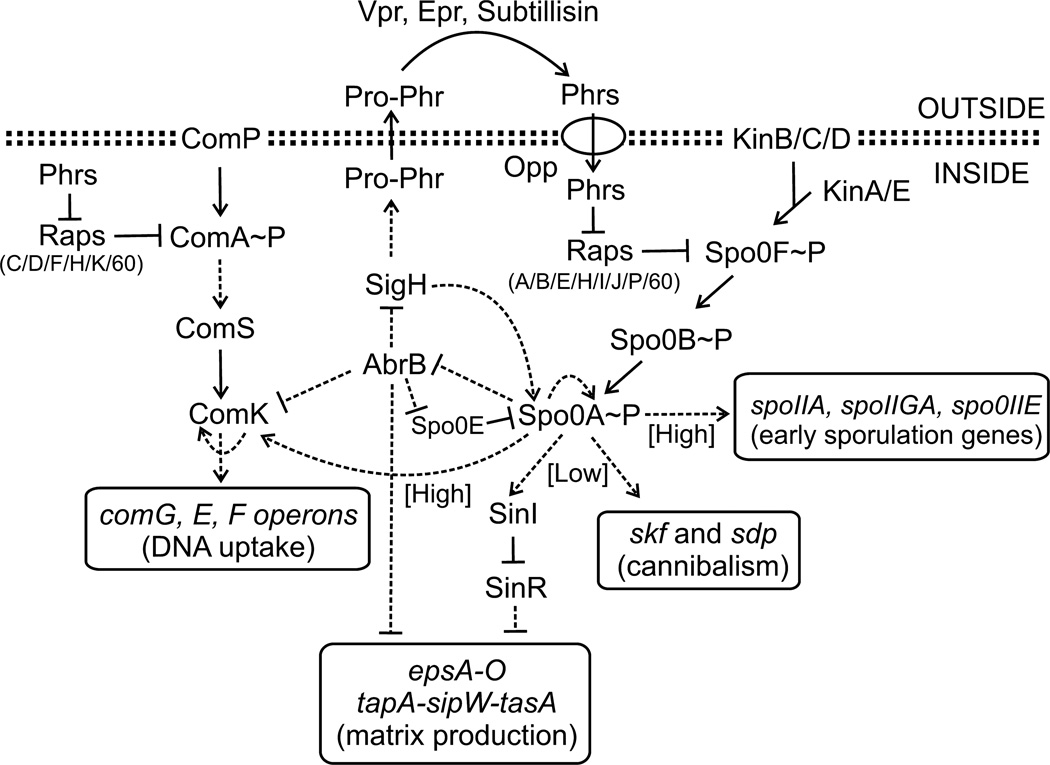Fig. 1.
Regulation of sporulation, biofilm formation, cannibalism and genetic competence in B. subtilis. The phosphorylation state of Spo0A and its activity is regulated by the sporulation phosphorelay system that includes kinases KinA-E and two intermediate proteins Spo0F and Spo0B. High levels of Spo0A~P are required for transcription activation of early sporulation and competence genes. In contrast, low levels of Spo0A~P activate genes involved in cannibalism and biofilm formation. Rap proteins inhibit Spo0A by acting as phosphatases of Spo0F~P, whereas competence-specific Rap proteins inhibit ComA binding to DNA. In the case of Rap60, ComA activity is inhibited without perturbing ComA binding to DNA. Phr signaling peptides coordinate the physiological responses with population density. Pro-Phr peptides are exported into the environment where they are processed into mature signaling peptides by extracellular proteases Vpr, Epr and Subtilisin. Mature Phr peptides enter the cell through the oligopeptide permease Opp where they bind to and antagonize the activity of their cognate Rap proteins. Phr peptide production is regulated by Spo0A via the AbrB-SigH pathway. Arrows indicate positive regulation, and perpendicular lines indicate negative control. Solid lines represent regulation by protein–protein interactions, and dashed lines represent transcriptional responses.

